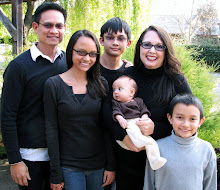Just something to think about.
How does science expand our knowledge? Through our ability to measure.
A simple unit of measure such as a finger length allows us to define distances, grams show us weight, wavelengths determine color spectrums and the presence of X-rays and ultraviolet radiation. As our abilty to measure things become more sophisticated, we diminsh the mysteries of our world. The seasons are not the product of mythology, but by the measureable rotation of earth around the sun.
Our striving for knowledge then, can it be limited by our ability to design devices of measurement?
In philosophy, the articulation of language is so crucial. A wordsmith with the philosophical mind to give his words credence will reach an audience if he can choose the right words to explain his thoughts, his reasonings. Just as in science and measurement, philosophy without the right vocabulary to communicate with can end a path of discovery.
A brilliant mind like Steiner's, I would imagine, would have run into obstacles that deal with language and science. Language can be limiting, one has to recognize that language was created by man, and to fully explain something new and different, something outside of the box, such as spirituality, or spiritual science in particular, it would have been quite a task. So it is no wonder his contemporaries in Europe would have dismissed him: the meaning behind a limited language (any language) can become lost. On the science side, without something measureable, something that can offer quantitative proof, his concepts were also met with challenges. How do you measure the soul, or the spirit?
What unit of measure would you use to define the soul? Should science try to measure the soul? What do you know to be true without measuring it?
What about love?
I know love exists without measuring it. (I believe love is carried in the astral body.) Just for fun, what unit of measure can you devise to qualify/quantify love?



No comments:
Post a Comment